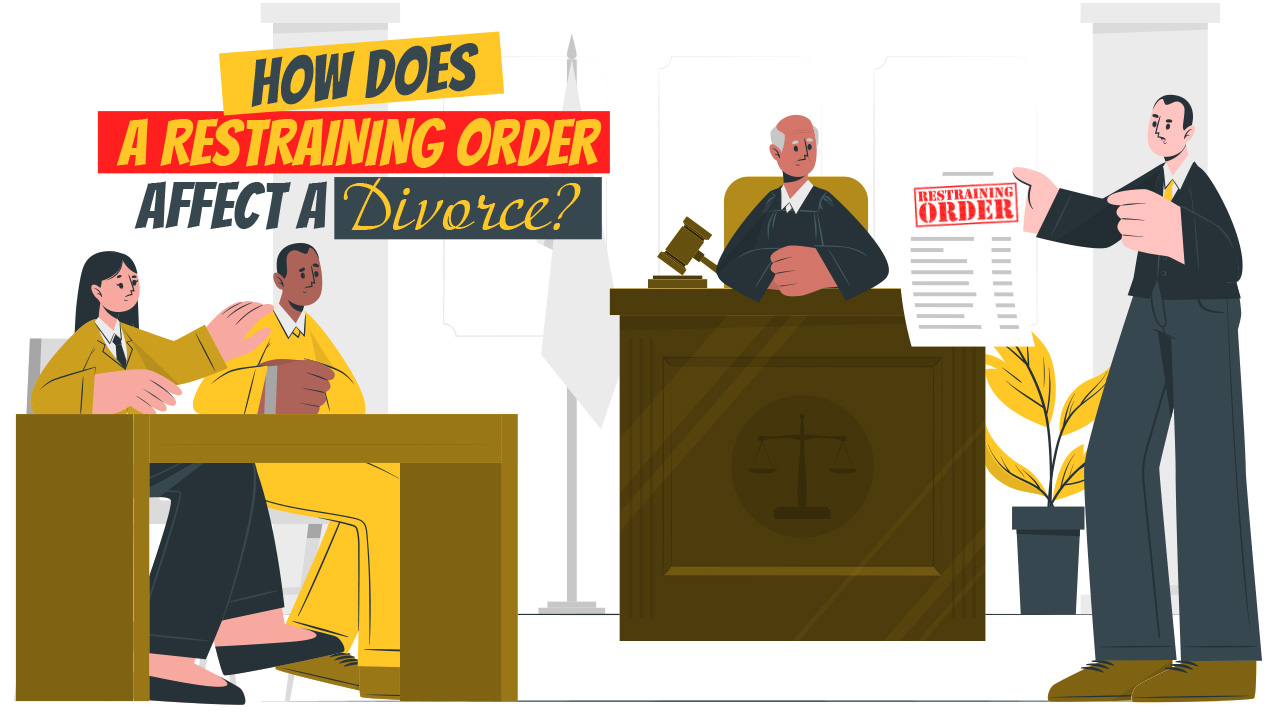If you want to make well-informed decisions during your divorce, it’s important to understand the impact of restraining orders. So, the question is: How does a restraining order affect a divorce? Keep reading to find out more about how restraining orders work and their effects on the divorce process.
What You Need to Know About Restraining Orders and Divorce
A restraining order is a court-mandated document that legally orders an individual to stay away from another person or property. There are three types of restraining orders, each of which serves a different purpose and has legal implications. There are three main types of restraining orders that may be issued during a divorce case:
Emergency Protective Order (EPO): An emergency protective order (EPO) is issued when there is an immediate threat of violence, harassment, or abuse. This type of restraining order can be requested by law enforcement officers, who will obtain it on behalf of the victim without the need for a court hearing. An EPO is often used in cases involving domestic violence or online stalking, and it typically lasts for up to seven days. During this time, the restrained person may not contact or come within a certain distance of the protected person or property.
Temporary Restraining Order (TRO): A temporary restraining order (TRO) is issued after a hearing in court and lasts until a final hearing can be held. This type of restraining order does not require proof beyond a reasonable doubt, but rather only requires that the judge finds that there is good cause to believe that harm may occur if the TRO is not granted. Like an EPO, it prevents a person from coming into contact with another person or entering certain places such as their home or workplace. It also often contains other provisions such as requiring the restrained party to surrender any firearms they possess.
Permanent Restraining Order (PRO): A permanent restraining order (PRO), also known as a “protective order”, is similar to a TRO but lasts much longer — typically up to five years — and must be renewed at the end of its duration if necessary. To obtain this type of restraining order, proof beyond reasonable doubt must be presented in court that harm could occur if it were not granted. A PRO generally contains many more provisions than an EPO or TRO and covers things like financial support payments and child custody arrangements as well as limiting contact with other people and property.
How Does a Restraining Order Affect a Divorce?
A restraining order can have serious implications for a couple going through a divorce. If one spouse has violated the terms of their restraining order, they may face criminal charges. Additionally, if one spouse violates their restraining order multiple times during their divorce proceedings, it could impact custody arrangements in favor of the restrained party. In some cases, a restraining order can negatively impact custody arrangements and visitation schedules. If you are currently going through a divorce and have been served with a restraining order, you should speak with an experienced family law attorney who can help protect your rights.
Seeking Legal Help
Seeking legal help when dealing with restraining orders in a divorce case is important because it ensures that all parties involved are aware of their rights and obligations under the law. An experienced lawyer can help you understand the implications of any restraining orders issued as well as how to navigate them successfully. Additionally, if you feel like your safety is being threatened by the other party, an attorney can provide you with sound advice on how to proceed legally and protect yourself while still following the terms outlined in the restraining order.
Additionally, having legal representation during a divorce proceeding can be beneficial because they understand what needs to be done for everything to be handled legally and efficiently. An attorney will also have access to resources and information that you may not have access to on your own, which can be invaluable during negotiations or settlement talks. Finally, having an attorney present during any family court proceedings provides an extra layer of protection for both parties involved, ensuring that all rights are respected throughout the process.
Conclusion
It’s important to remember that restraining orders can have a major impact on the outcome of a divorce. Knowing how a restraining order affects divorce is critical for protecting yourself and your property in any divorce proceedings. Talk with a professional who can help you review your rights and ensure that all orders are legally binding and respected by both parties. Knowledge is power when you aren’t sure what your next move should be, so make sure to get informed as much as possible before making your next steps.







